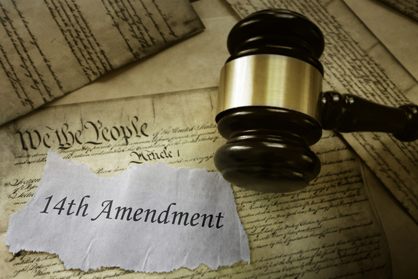A law firm based in Chicago, Mayer Brown, was named in a weekend report regarding the National Security Administration and its spying activities. The firm issued a statement after the release of the report that does not provide a complete denial that its communications were under surveillance, according to The Chicago Tribune. The statement from the firm does say that there is ‘no indication’ spying occurred at the firm.
It was reported on Sunday by the New York Times, which cited a document from February of 2013 obtained by Edward Snowden, that the NSA had been notified that the Australian Signals Directorate was spying on trade talks between Indonesian officials and a law firm hired to help the officials in the talks.
The Australian Signals Directorate is the Australian agency similar to the NSA. The NSA had been alerted by the Australian agency that “information covered by attorney-client privilege may be included” in the spying documents. After the NSA counsel’s office consulted with the agency, the Australians were “able to continue to cover the talks, providing highly useful intelligence for interested U.S. customers.”
The law firm was not identified by the document, but the firm was representing the Indonesian government when the spying occurred. In 2012, the firm lobbied on behalf of the Specialty Tobacco Council in Winston-Salem, North Carolina and the Indonesian cigarette maker P.T. Djarum, according to records filed with the United States Senate.
In a statement released by the firm on Sunday night, Mayer Brown said, “There is no indication, either in the media reports or from our internal systems and controls, that the alleged surveillance occurred at the firm.”
The Tribune asked the firm if there was no evidence of spying at the law firm, or that no evidence was present of spying of the firm, a spokesman from the firm said, “At the firm.”
The statement from Mayer Brown also said, “Nor has there been any suggestion that Mayer Brown was in any way the subject of the alleged scrutiny. Mayer Brown takes data protection and privacy very seriously, and we invest significant resources to keep client information secure.”
When it comes down to who the target of the spying was, the NSA is not permitted to spy on Americans with warrantless surveillance. The NSA is permitted to intercept communications between foreign intelligence targets and Americans though. This includes attorney-client conversations.
Vanee’ Vines, a spokesperson for the NSA, said, “Because some communications of U.S. persons may at times be incidentally collected in NSA’s lawful foreign intelligence mission, the agency’s authorities include procedures that protect the privacy of U.S. persons.”
Vines also said that steps to “protect potentially privileged information,” could involve “requesting that collection or reporting by a foreign partner be limited; that intelligence reports be written so as to limit the inclusion of privileged material and to exclude U.S. identities; and that dissemination of such reports be limited and subject to appropriate warnings or restrictions on their use.”











































